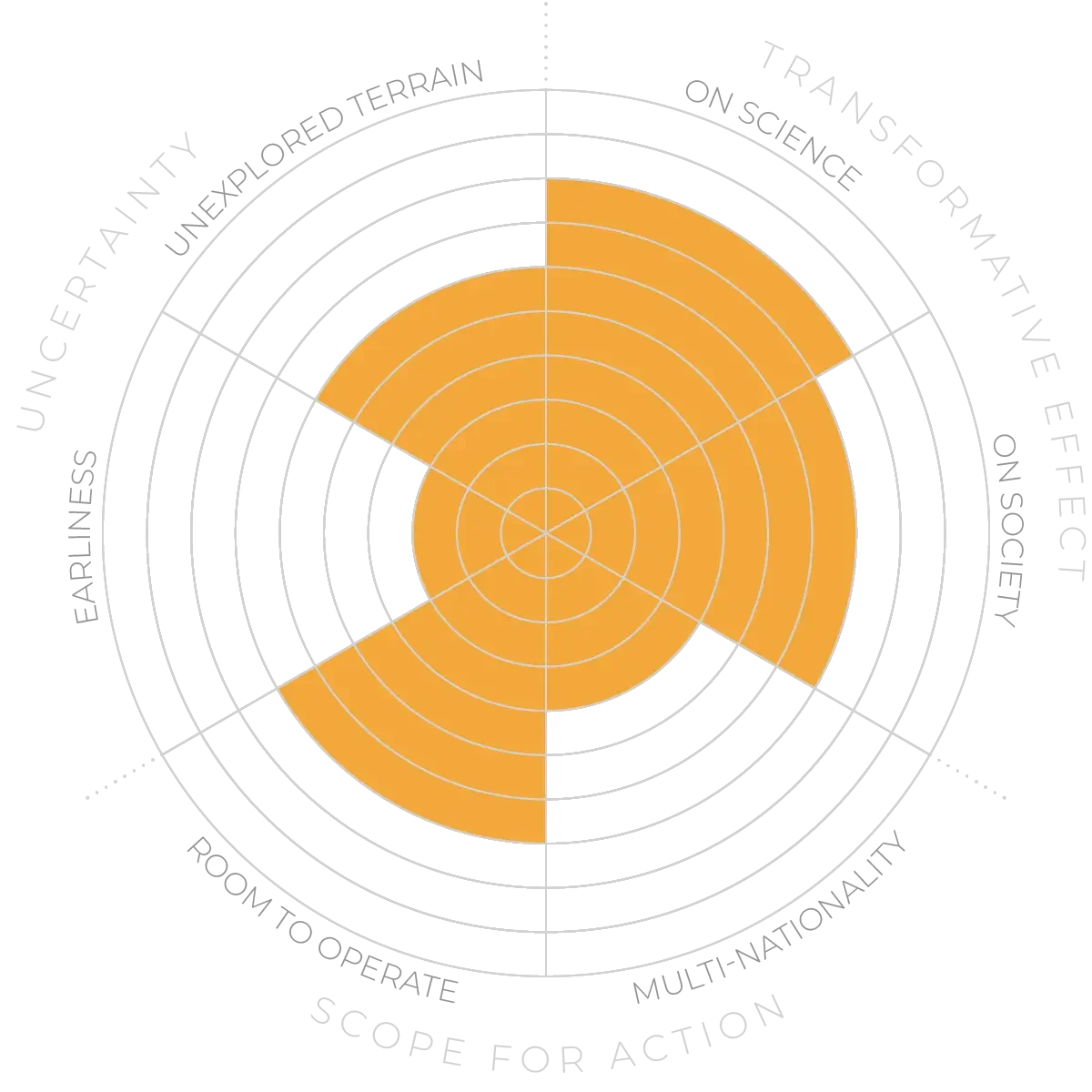Future Horizons:
10-yearhorizon
Multi-stakeholder science diplomacy becomes the norm
25-yearhorizon
Private sector actors are integrated in governance
The attempts at influence go both ways, however. Numerous nations (and groups of nations, such as the EU) have created “tech ambassador” roles and deployed these representatives to gather information, lobby and negotiate in Silicon Valley and other technology hubs around the world.3
Sometimes, technology diplomacy has to operate where the lines between nation-states and private companies are blurred, as with China’s Huawei and ZTE. There are also issues with technology companies offering a country a competitive edge or working in areas that involve national security sensitivities, such as supercomputing hardware. Here, tech diplomats must tread the fine line between corporate freedoms, global balances of power and issues of national interest — often with incomplete information due to the unwillingness of all parties to fully disclose all the relevant data.
In some regions, where regulatory environments are weak, lobbyists, activists and grass-roots organisations are pushing the boundaries of science with their work on anti-ageing therapies and gene editing, some of which can influence regulatory policy-making, and sometimes accelerate the pace of change. Even small-scale companies, if they are significant employers in a region, can influence local political decision-making and tech-related legislation.
All of these various initiatives demonstrate the rising importance of transnational, non-state and even individual or small-group actors to local and global governance, something that the field of science and tech diplomacy must navigate. 4 5
Technology Diplomacy and the role of non-state actors - Anticipation Scores
The Anticipation Potential of a research field is determined by the capacity for impactful action in the present, considering possible future transformative breakthroughs in a field over a 25-year outlook. A field with a high Anticipation Potential, therefore, combines the potential range of future transformative possibilities engendered by a research area with a wide field of opportunities for action in the present. We asked researchers in the field to anticipate:
- The uncertainty related to future science breakthroughs in the field
- The transformative effect anticipated breakthroughs may have on research and society
- The scope for action in the present in relation to anticipated breakthroughs.
This chart represents a summary of their responses to each of these elements, which when combined, provide the Anticipation Potential for the topic. See methodology for more information.



